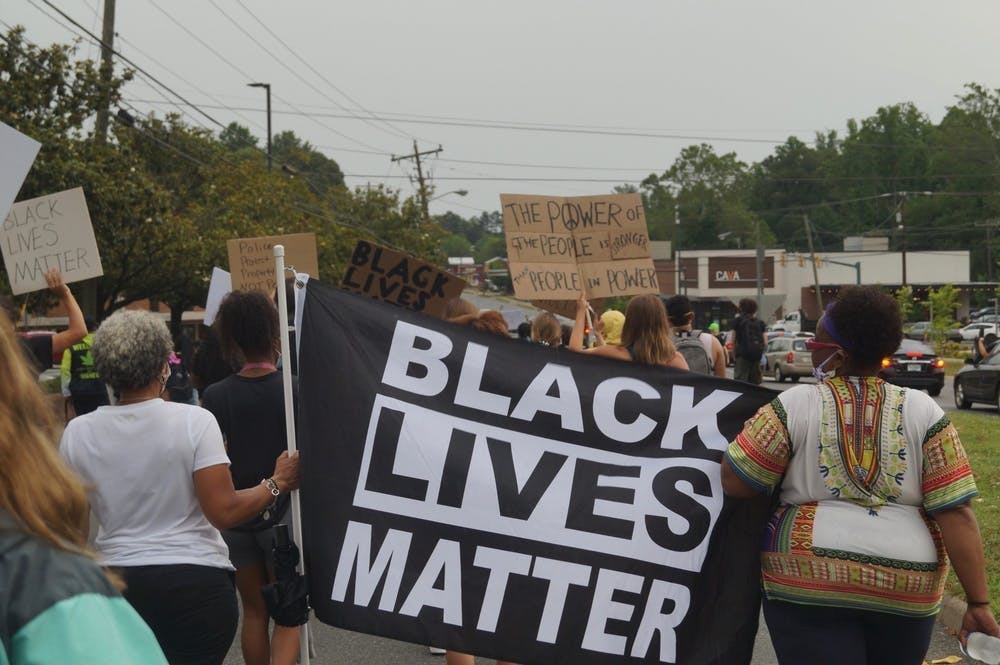In the wake of George Floyd’s murder, America has witnessed political and social upheaval on a scale never before seen. It certainly is not an exaggeration to say that the conversation on race is now ubiquitous, with the national focus on systemic racism greater than ever. While there remains more work that needs to be done — such as prosecuting the officers responsible for the death of Breonna Taylor — the Black Lives Matter movement has seen many triumphs as America’s institutions and public are now expressing anti-racist sentiments. Some of America’s most prominent organizations, including Major League Baseball and the National Basketball Association, are now explicitly condemning systemic racism and the public largely agrees, with 63 percent of America supporting the Black Lives Matter movement and 69 percent believing that racial minorities are discriminated against in the criminal justice system.
This movement is, of course, not without its critics. Many conservatives have sharply criticized Black Lives Matter, including some who have outright denied the very existence of systemic racism and called into question the patriotism of the protestors themselves. Tucker Carlson took to the latter a few weeks ago on his nightly show, asking “can the left really lead a country it hates?” In doing this, Carlson makes a clever analogy, asking “What kind of parent would you be if you hated your children? What kind of officer would you make if you didn't care about your troops? It would be awful.” In the same way a hate-filled mother can’t raise a child, neither can Democrats lead America, Carlson argues.
Carlson’s response to the ongoing protests echoes a popular conservative sentiment, suggesting that being deeply dissatisfied with America reflects an intrinsic hatred of the country. Over the years, this idea has become a cornerstone of conservative politics. In the late 1960s and early 2000s, for instance, it was used to diminish the anti-war movements, and more recently it was used to ostracize Colin Kaepernick. Today this sentiment is being used to dismiss any attempt to relook at the way we celebrate American history, particularly discussions over whether or not to keep certain historical monuments.
The idea that the country’s biggest critics simply hate America and are not to be trusted is that it rests on a notion of patriotism in which “loving one’s country” is reducible to waving the stars and stripes and chanting “U.S.A!” This is the definition of patriotism that Carlson and many on the right endorse. Of course, there is more to it than that, but in general it manifests as the worship of the idea of America, rather than a deep concern for its people.
Perhaps it is time that we reconsider the way that we look at patriotism. Consider, for instance, two American heroes — Martin Luther King, Jr. and Frederick Douglass. Were these men patriots? Most people would likely say “yes,” although this is because we now view them positively. Truthfully, however, few people considered them to be patriots while they were alive, and they certainly do not fit the description of “patriot” that most conservatives praise. Rev. King criticized far more about America than just its issue with racism and Douglass famously gave a speech on not celebrating the Fourth of July. Douglass and King didn’t spend a lot of time praising America but does that mean that they weren’t patriots? If we are to subscribe to Carlson’s definition, then the answer has to be yes.
If the term patriot means anything, then it has to apply to these men. They risked their lives to make their country better, despite knowing that most people would hate them for it. Yes, they were not triumphantly waving the American flag, but that is not the essence of loving one’s country. Love and approval are not the same thing. In fact, they are not even related. To love something is to care deeply about that thing. Someone who truly loves America will not shy away from pointing out its deep flaws — not because they receive pleasure from insulting our country, but because they recognize that the first step to solving the problems America faces is identifying them.
Loving America is not simply a question of approving of our country. That is too easy — and it accomplishes nothing. Loving America is a question of caring about how our nation lives up to its ideals — something which is most apparent in how it treats its citizens. Loving America is not blindly asserting that it has always been the greatest country on earth, or insisting that it isn’t fundamentally flawed. Loving America is caring about it enough to point out its flaws, even if no one else wants to hear them, and even if it takes the country years to appreciate your criticism.
Sam Mattingly is a Viewpoint Writer for The Cavalier Daily. He can be reached at opinion@cavalierdaily.com.
The opinions expressed in this column are not necessarily those of The Cavalier Daily. Columns represent the views of the authors alone.







